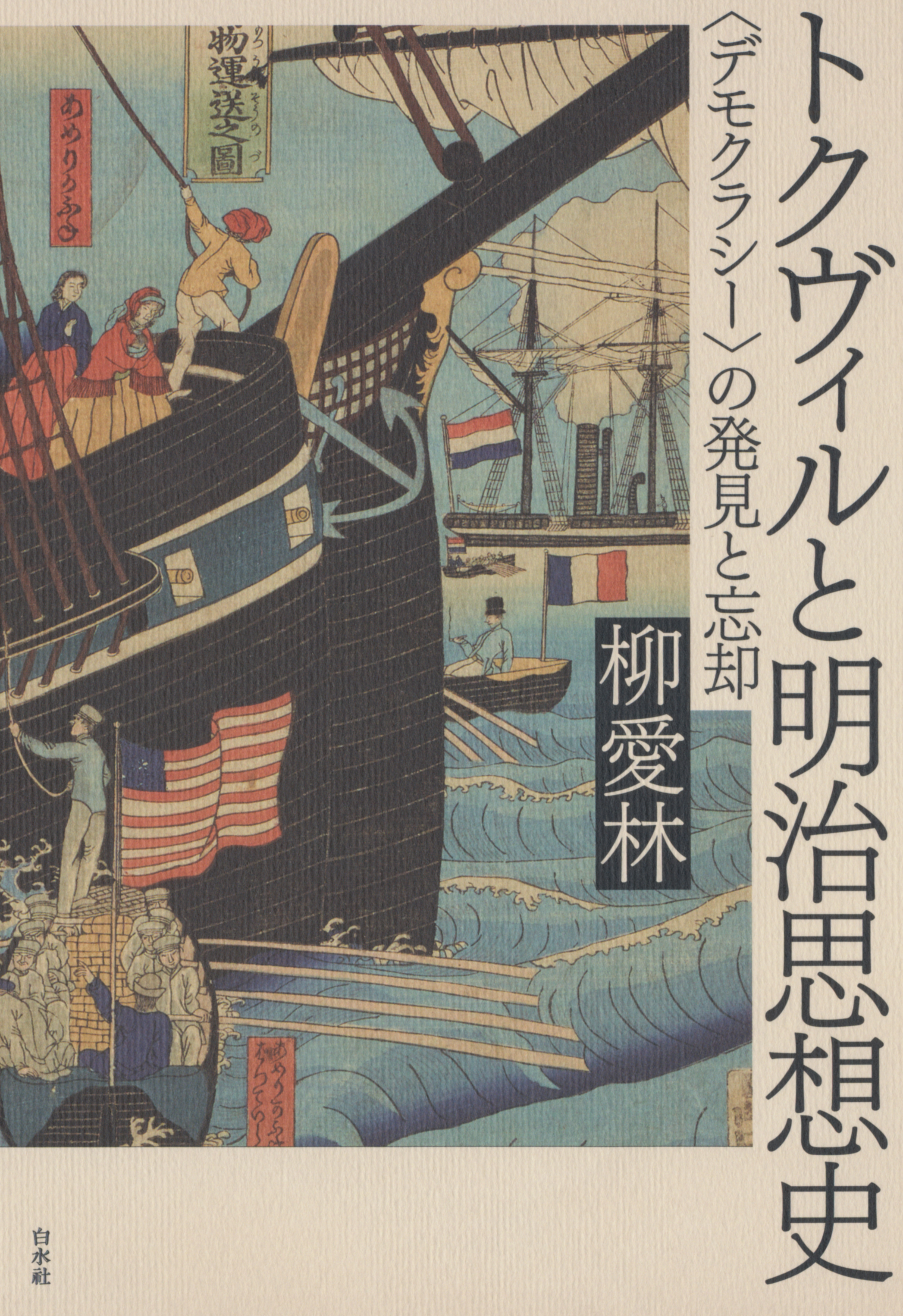
Title
Tocqueville to Meiji Shisoshi (Tocqueville and the Intellectual History of Meiji Japan - The Discovery and Oblivion of “Democracy”)
Size
334 pages, 127x188mm
Language
Japanese
Released
October 28, 2021
ISBN
9784560098653
Published by
Hakusuisha
Book Info
See Book Availability at Library
Japanese Page
Chers Mesdames et Messieurs au Japon.
My name is Alexis de Tocqueville. I was a French political scientist who passed away in 1859. I was also a politician. I think there are some people who know my name and some who do not. I visited America with my friend Gustave de Beaumont in 1831, and wrote and published a book titled De la Démocratie en Amérique based on what I saw and heard there. This book won great acclaim and I became famous in both Europe and America. That was 187 years ago.
I recently found out a book titled Tocqueville and the Intellectual History of Meiji Japan that this book of mine was also translated and introduced in Japan in the 19th century. I already knew that On Liberty by John Stuart Mill, who was also one of my friends, and Monsieur Rousseau’s Du Contrat Social had been translated into Japanese and that many people had read them in the era known as “Meiji.” I was very happy to discover that one of my most influential works had also been translated into Japanese and English and widely read.
I read with great interest the writings of Monsieur Fukuzawa Yukichi and his disciples who quoted my work. The way in which they developed their discussions by linking my arguments on federalism and self-government with feudalism were particularly interesting. I was surprised that Japan’s first prime minister, Monsieur Ito Hirobumi, also read my book and made a statement about religion. I believe the thought of the Japanese people who gave attention to the function of religion at the time certainly contained points that were similar to my own thoughts on this matter.
Nevertheless, it appears that many Meiji Japanese also did not have a precise understanding of my arguments. Well, since the first English translator of De la Démocratie en Amérique, Monsieur Henry Reeve, also misunderstood and mistranslated many points in the book, it is only natural that Monsieur Koizuka Ryu’s secondhand translation, Jiyu Genron, would contain many mistranslations. I understood very well that some of the misunderstood sections were due to the contextual situation and the interests of people in Japan at the time. This kind of thing happens in all ages. Not only with my arguments, but with people who misunderstand the arguments of others. Even so, for establishing original ideas, it is crucial to first read voraciously and then develop our thoughts based on what we have read.
De la Démocratie en Amérique was widely read from 1835, when it was published, until around 1870, but it is said that both the book and my name were then almost completely forgotten until around 1940. Even in Japan, there was a period when I was similarly forgotten. The period during which I was famous in Japan appears to have been shorter than in other regions, but it was interesting that the reason why I was forgotten was not all that dissimilar from other places, and that there was also the unique Japanese reason that the American model became unnecessary after the enactment of the Meiji Constitution.
Reading Tocqueville and the History of Meiji Thought, I felt that I wanted to read once more the book I wrote 187 years ago. It also seems that there is a lot of interesting research on me appearing in Japan recently. I hope very much that you will all read them too.
Juin, 2022
Alexis de Tocqueville
(Written by: RYU Aerim / June 24, 2022)
Related Info
The 2nd UTokyo Jiritsu Award for Early Career Academics (The University of Tokyo 2021)
https://www.u-tokyo.ac.jp/ja/research/systems-data/n03_kankojosei.html



